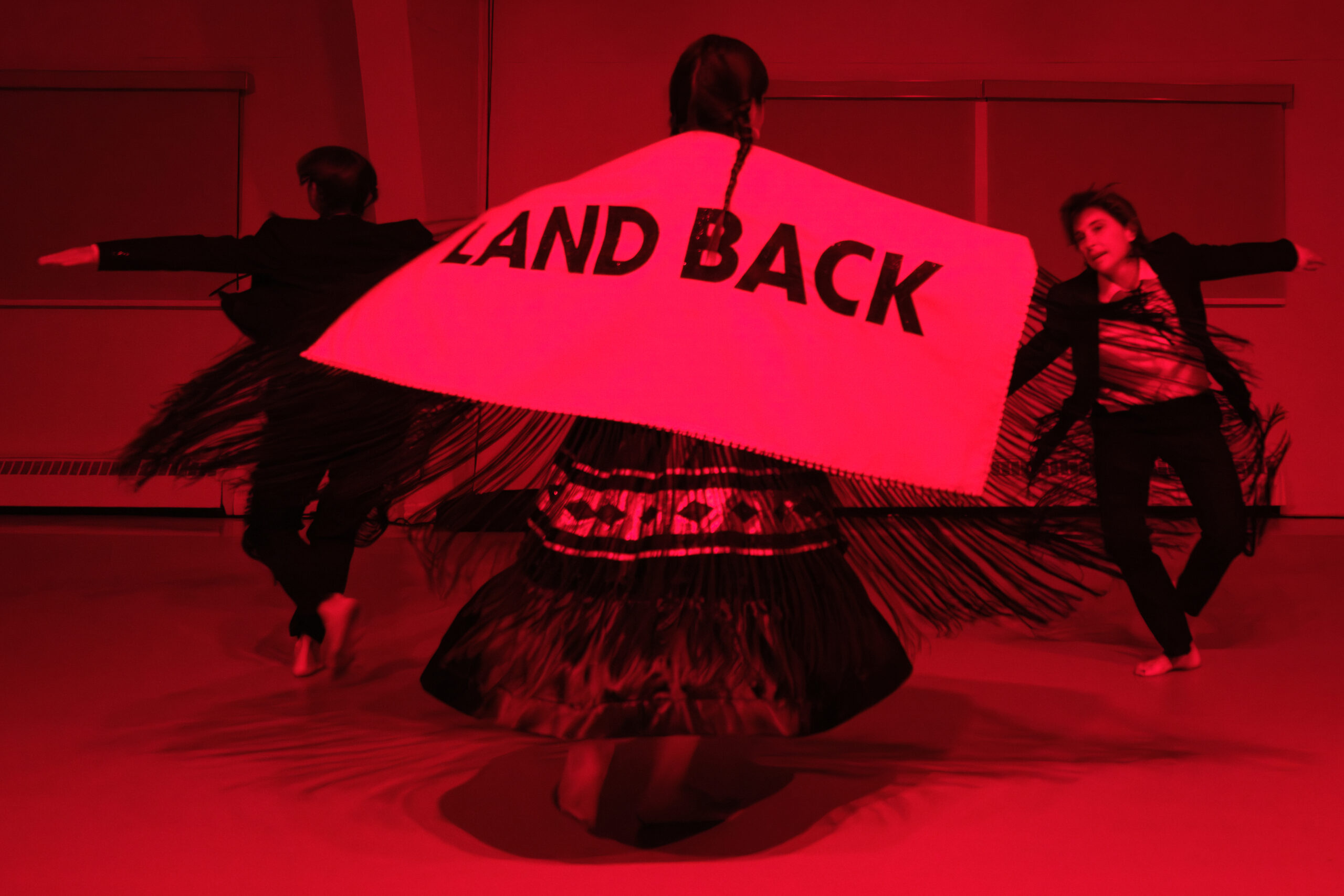
Photo : © Moïse Marcoux-Chabot
Mandoline Hybride also puts its values into action with shared curatorships, the promotion of its projects from a decolonial perspective, and self-education and knowledge-sharing initiatives with the cultural milieu. The organization is committed to supporting struggles against colonial domination through concrete actions such as targeted volunteer work, the dissemination of discourses linked to these struggles, the creation of structuring projects to stimulate encounters between indigenous and non-indigenous artists, attention to the promotion of indigenous languages and traditions, and various forms of recognition of the territory.
We, the artists and collaborators of the Marsoui-based Mandoline Hybride company, wish to acknowledge that our activities and gatherings take place on the unceded lands and waters of the Mi’gmaq Nation. These traditional lands and waters are known to the Mi’gmaq community as the 7th district of the Mi’gma’gi, Gespe’gewa’gi: The Last Land. In 1726, the “Peace and Friendship Treaties” were signed between the Wolastoqiyik (Maliseet) and Mi’kmaq nations and the British Crown. The treaties in question contained no clause relating to the cession of lands and waters, but did in fact recognize the title of the Wolastoqiyik and Mi’kmaq peoples, defining the rules for what was to be a lasting relationship between the nations. We also wish to acknowledge that the shores of the St. Lawrence River have been meeting places, gathering grounds, fishing and hunting grounds for aboriginal peoples since long before the arrival of the first European settlers. Through art and community projects, we hope to contribute to the age-old movement of artistic exchange between peoples, and recognize our responsibility to renew our practices with respect for present and future generations.
This statement was written in collaboration with Erika Gideon Marchand of the Mi’gmaq community of Listuguj, and with the help of the book Nta’tugwaqanminen – Notre histoire: L’évolution des Mi’gmaqs de Gespe’gewa’gi, which is the fruit of a research partnership between the Mi’gmaq of northern Gespe’gewa’gi (Gaspé Peninsula and northern New Brunswick), their elders and a group of experienced researchers. The aim of this book is to enable these people to reappropriate their history, both oral and written, in a process of reclaiming knowledge. Wela’lin!